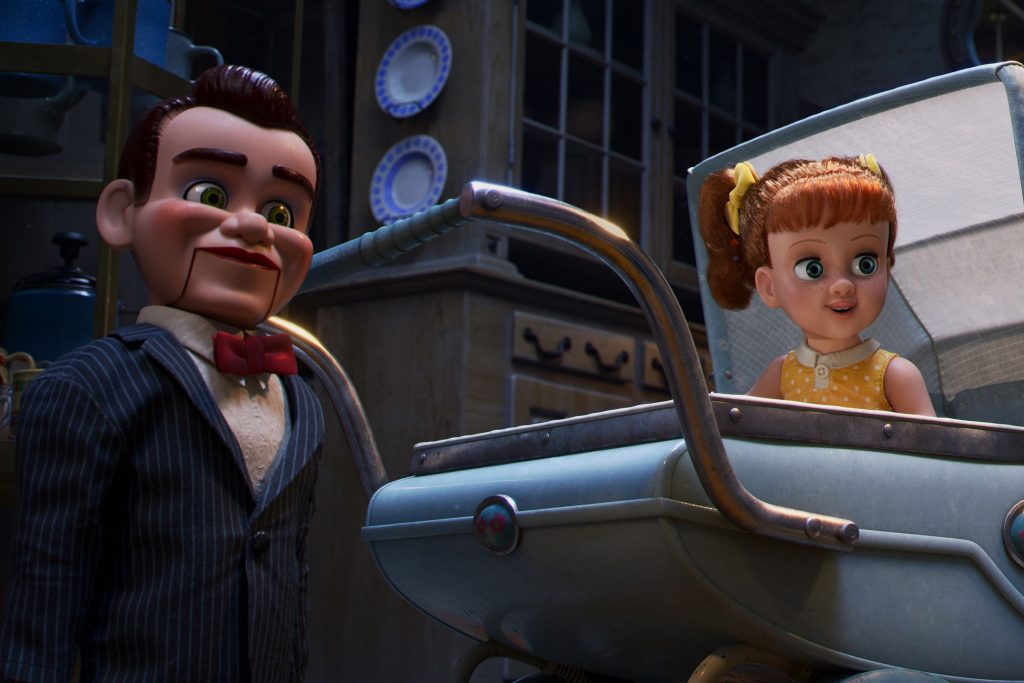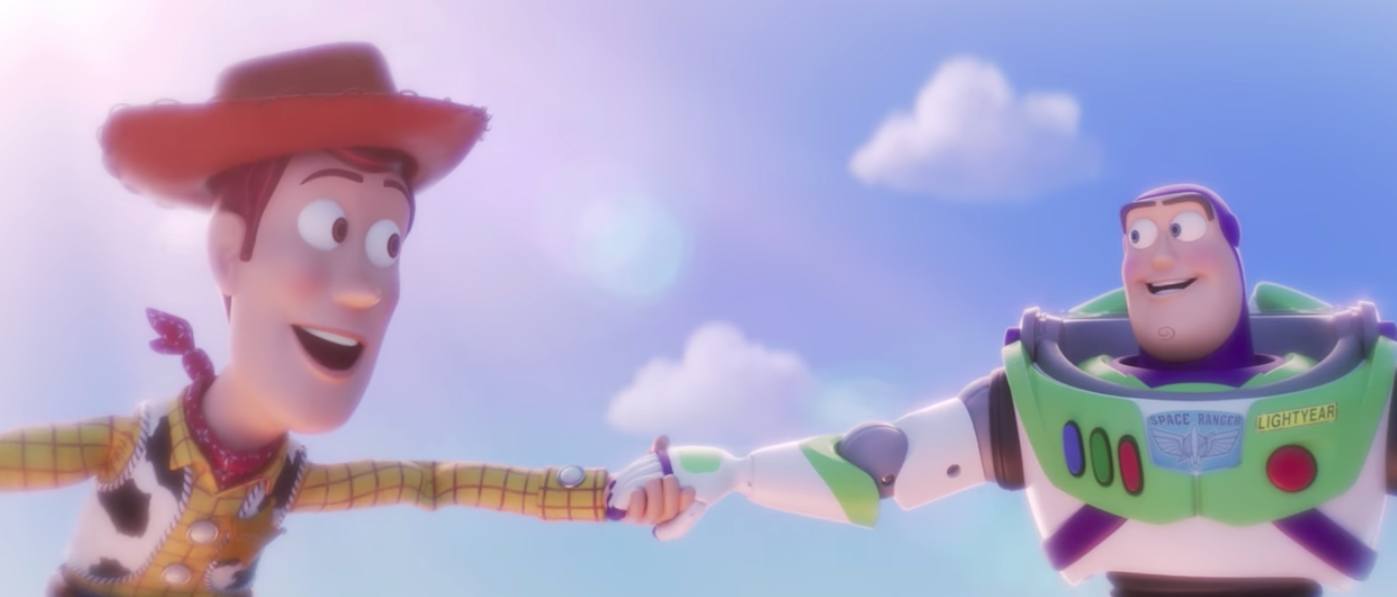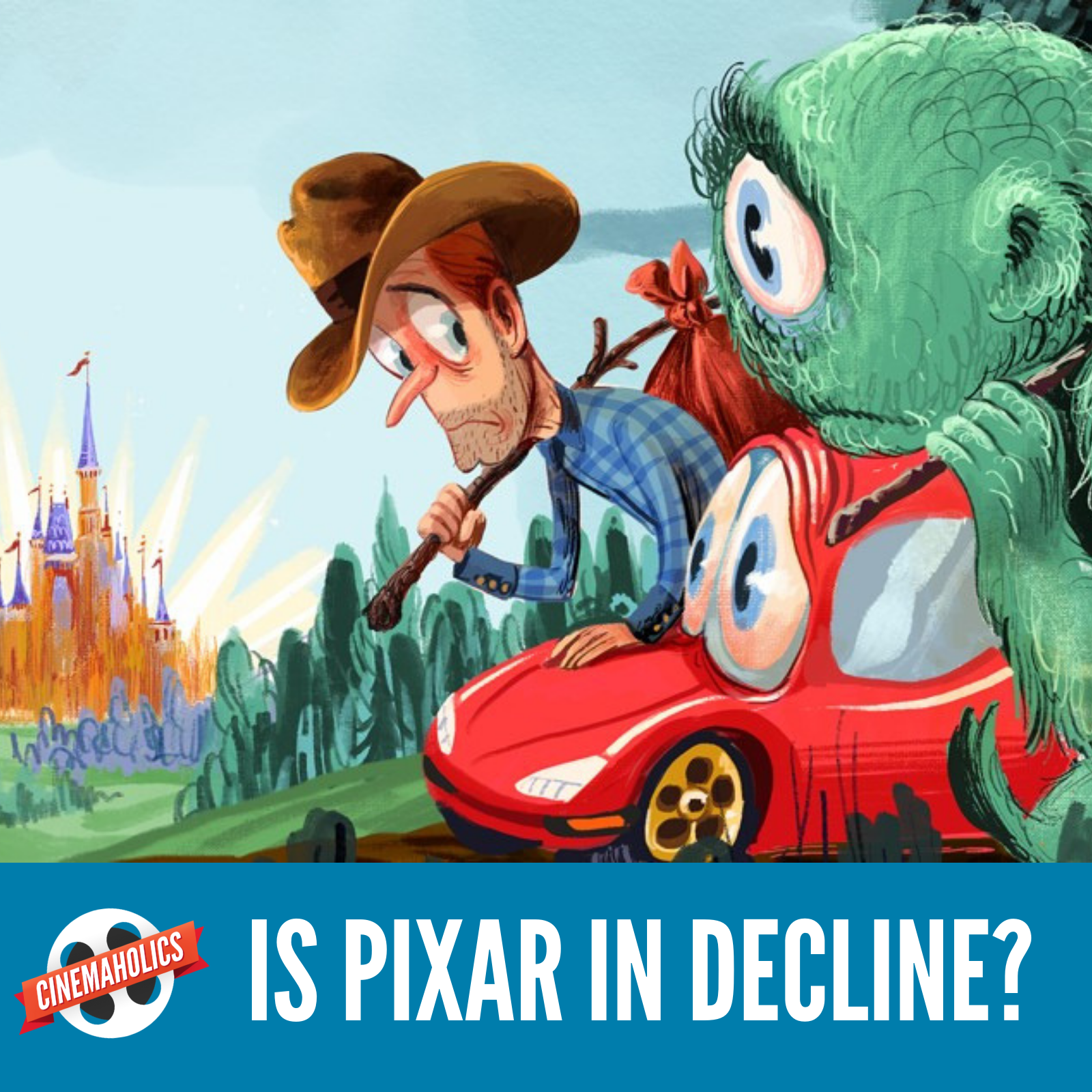
After my first viewing of Toy Story 4, I confronted a lot of the movie’s themes on a mostly surface level. I followed Woody’s journey to its completion, and I reckoned with some of the more basic, obvious lessons the film imparts when it comes to realizing our purpose later in life, reexamining long-held worldviews, and letting go of the past in favor of new possibilities.
But this is Pixar, so there are of course even deeper lessons to confront and maybe even challenge. I came across a noteworthy line of criticism from film critic William Bibbiani, which takes aim at the film’s handling of our main antagonist, Gabby Gabby (voiced by Christina Hendricks).
Warning: spoilers for Toy Story 4 follow. If you have not seen the movie, I recommend you come back after doing so. You will be spoiled on parts of the ending, otherwise.
From Bibbs on Twitter:
Bibbiani brings up an interesting point here about ableism and identity, specifically as it relates to Gabby Gabby. You could argue that his point also concerns Forky, but he’s not a character trying to change himself so others will love him. He simply decides to accept a new role as a toy because he’s already loved for simply being himself.
No, it’s Gabby who has the more complicated turn as a character. She calls herself “defective” right out of the box because her voice box doesn’t work, hence she tries to steal Woody’s, all for the sole aim of gaining the love and affection of Harmony, a child in the antique shop. Ultimately, she succeeds in repairing her voice box after rationally pleading with Woody, who voluntarily gives it to her. But…Harmony still rejects her.
As Bibbs points out:
I jumped into the conversation, as well:
This is an intriguing perspective from Bibbs because ableism is one of the least-recognized downsides for a lot of films, usually because filmmakers don’t understand or think about these implications when telling stories about people with disabilities. By his estimation, Toy Story 4 stumbles in how it unintentionally (at best) sends a message about kids needing to change their flaws in order to be accepted and loved.
At this point in the conversation, I was unconvinced either way. I could see Bibbs’ point, which is one I’ve personally recognized in a lot of other films that handle these ideas carelessly. So I rewatched Toy Story 4 with this criticism in mind, ready to come out with a fresh perspective.
The result? Now, I see Toy Story 4 in a new light. Because it’s saying something surprisingly relevant, at least when it comes to my own disability. Let me explain.
I was born with a genetic hearing disorder. Basically, the bones in my ears have been bad at vibrating sound since I was a baby, so as I’ve gotten older, my hearing in both ears has harshly deteriorated. If I can hear you, I probably have no idea what you’re saying, or I might only catch half the words. It all sounds like a garbled mess to me, and the ringing in my ears doesn’t help.

In a lot of ways, I’m about as “defective” as Gabby Gabby. I’ve had a lot of trouble over the years connecting with people, mainly because I can’t hear them. And few will give me the time of day because they either think I’m ignoring them, not listening, or am just aloof. It’s the kind of disability where people don’t realize you have it unless you explain it. My version of getting a new voice box was getting hearing aids for the first time. They changed everything for me.
So while watching Toy Story 4 the second time, I nearly broke down as Gabby explained this to Woody. She felt like deep down, her identity was a connection based on being herself, or how she feels she’s supposed to be. I was equally blindsided by the moment when Gabby is still rejected by the person she’s yearned to be loved by for years. Without getting too personal, this has happened to me multiple times on a similar level.
Toy Story 4 isn’t a movie about changing yourself for others. It’s a movie about lending validity to what you truly want out of life. If you want to be loved, you deserve to go through whatever it takes to bring your true self to others, using any advantage you can acquire, as long as it doesn’t harm others (Gabby learns this thanks to Forky explaining Woody’s backstory to her). If you want to help people and devote your life to service, that’s OK, too. Woody learns this lesson about it being OK to change your mind about your purpose later in life, rejecting long-held fears of becoming a lost toy.
My disability isn’t a monolith. Not everyone should interpret this movie as a validation of feeling like you need to be “repaired” if you don’t want to be or think you need to be. Woody doesn’t want to change himself in order to become Bonnie’s favorite toy and thus relive the Andy days. He simply moves on to a group of people who love him for him. And losing his own voice box doesn’t make him a lesser toy in anyone’s eyes.

If anyone told me that I shouldn’t have gone through what I did in order to get hearing aids simply because people should just love me for me…well, I’d politely tell that person to mind their own business. Granted, that doesn’t have to be the same response for someone else with a different disability. But that’s the point. The beauty I saw in Toy Story 4 was in its embrace of other worldviews as plausible and worthy, and the fact that not everyone will want the same things you do in life is a hard, but useful lesson to learn.
In the scene where Gabby is eventually accepted by a lost child, they are indeed at least partly connected by the voice box working. But I see this as a wonderful moment, because for the first time, Gabby is heard for who she truly is. Sadly, not everyone can easily fix something like this. Woody can’t force Bonnie to love him like Andy did. Eventually, he stops trying because he knows she’ll be OK without him, and he’ll be OK without her.
I’ve already come across people who find my hearing aids off-putting in some way, even if they try to keep it to themselves. I can’t do anything about that. But with these little devices, I can finally be who I really am around people when I’m not typing away, alone in a room. I can go into a movie theater and stop struggling to understand what the characters are saying. That’s a gift, not me giving something up in order to make other people happy.
All that said, I’m still keeping an eye out for how other people are engaging with this film, for better or worse. A movie can’t be all things to all people, and even the best ones can have messages that need to be analyzed in how they might diversely affect different groups of people. If you had any complicated feelings about Toy Story 4 one way or other, please share in the comments below. You deserve to be heard.






